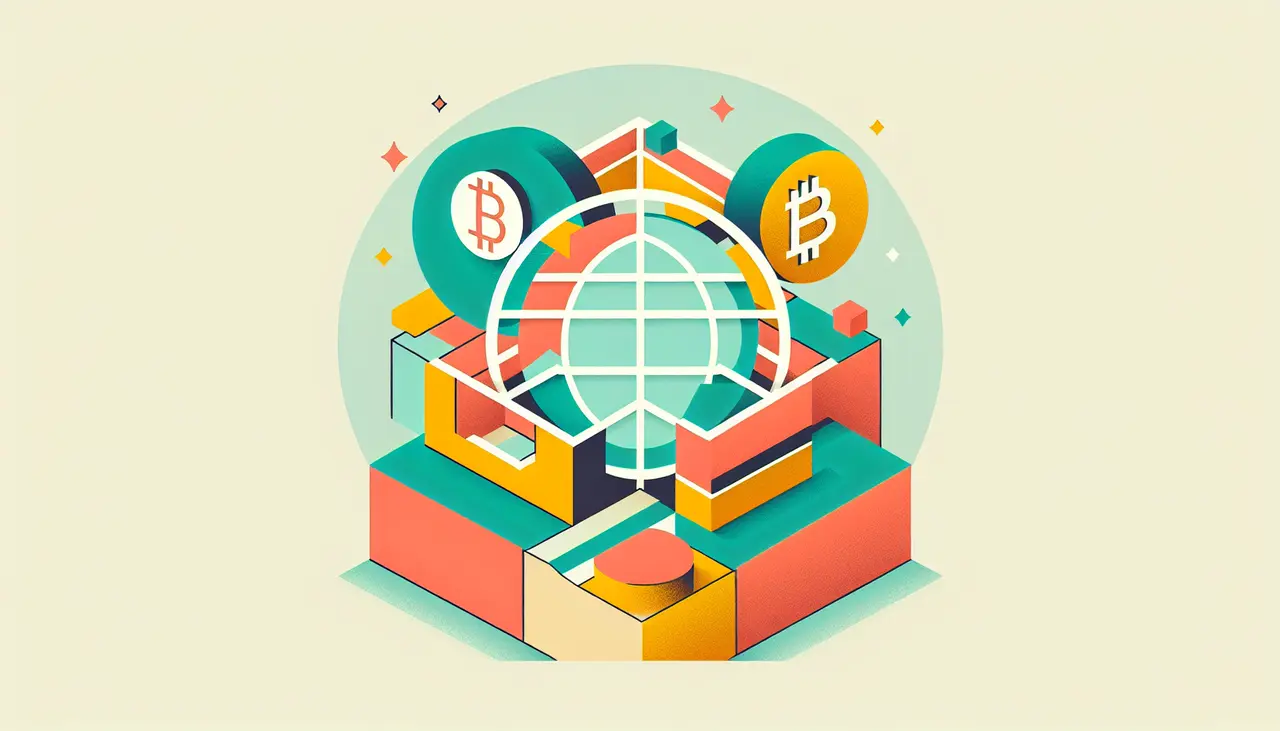Beyond Bitcoin: Discovering Altcoins on Global Crypto Exchanges
Posted on 19 April 2024
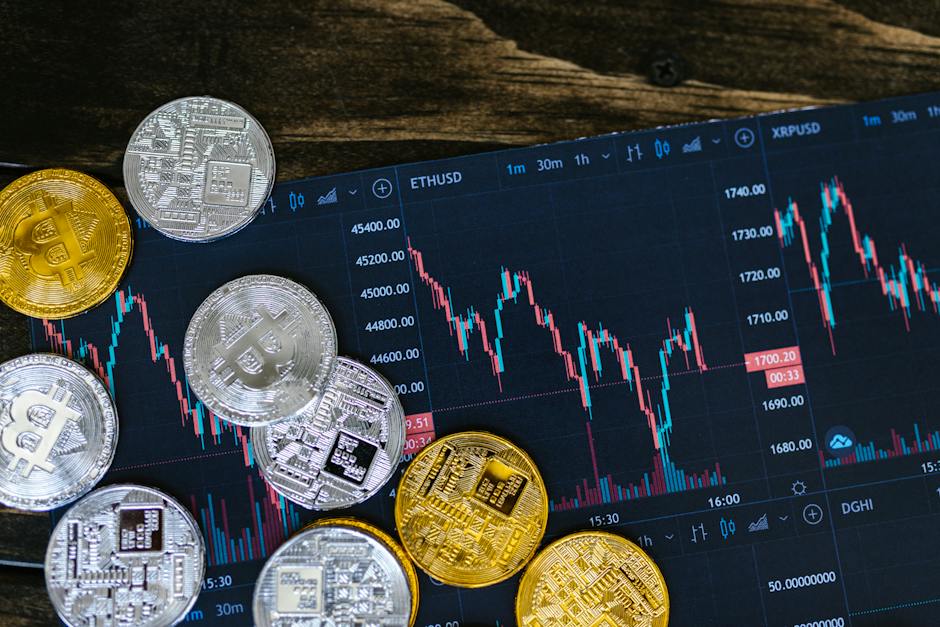
Introduction to Altcoins: What They Are and Why They Matter
So, we're diving into the world of altcoins, which, in simple terms, are cryptocurrencies that aren't Bitcoin. Think of Bitcoin as the firstborn in the cryptocurrency family, which automatically makes it the most famous. But, just like in any family, there are other members - these are the altcoins. They came after Bitcoin, aiming to improve on what Bitcoin started or to serve entirely different purposes.
Why should you even bother with altcoins, you ask? Well, for starters, some altcoins offer faster transactions, better privacy, or more efficient energy use than Bitcoin does. This variety means you've got options depending on what you value most in a cryptocurrency. Besides, investing in altcoins can be a way to diversify your crypto portfolio beyond just holding Bitcoin, potentially reducing risks and increasing chances for returns.
Remember, the crypto world is vast and constantly evolving. Altcoins are a big part of why it stays exciting and holds promise for new developments that could reshape the digital currency landscape. So, keeping an eye on them isn’t just for crypto enthusiasts - it's for anyone intrigued by the future of money.
The Role of Global Crypto Exchanges in the Altcoin Market
Global crypto exchanges are like giant online shopping malls for digital currencies, including both well-known names like Bitcoin and the lesser-known, or "altcoins." In essence, these exchanges act as the bridge connecting buyers and sellers, enabling crypto enthusiasts to swap, buy, or sell their digital treasures. When it comes to altcoins, which are essentially any cryptocurrency that isn't Bitcoin, these exchanges play a crucial role in shaping their value and popularity.
First off, these exchanges provide a platform for these altcoins to gain exposure. Imagine having a groundbreaking product but no shelf space in stores; that's where altcoins stand without exchanges. By listing an altcoin, an exchange not only gives it a stamp of legitimacy but also opens it up to a global audience of potential investors.
Moreover, the trading volume generated on these exchanges directly influences an altcoin's price and stability. High trading volumes generally indicate keen interest and a healthier, more vibrant market for the altcoin, sometimes even sparking price rallies.
Another vital role of these exchanges is facilitating liquidity. This means that if you own altcoins, you can easily exchange them for other digital currencies or fiat money (like dollars or euros) without significantly affecting the altcoin's price. This ease of conversion is crucial for both seasoned traders and newcomers interested in exploring the altcoin terrain.
In summary, global crypto exchanges do a lot more than just match buyers with sellers. They breathe life into the altcoin market, providing avenues for exposure, influencing prices through trading volumes, and ensuring liquidity. For anyone looking to dive into the world of altcoins, understanding these exchanges is a great first step.
How to Choose a Global Crypto Exchange for Trading Altcoins
When diving into the world of altcoins, finding the right global crypto exchange is key. You want a platform that’s easy to use, secure, and offers a wide selection of coins. Here’s the straight-talk guide on choosing:
First off, security is non-negotiable. Look for exchanges with strong track records, two-factor authentication, and insurance against hacks. Your money's safety should be their top priority.
Next, check the fees. They can eat into your profits. Some exchanges have low trading fees but hit you with high withdrawal fees. Understand the fee structure – no surprises are good surprises.
Then, don't ignore the user interface. You need something straightforward, where buying and selling doesn’t feel like cracking a code. If there’s a demo or trial, use it. Get a feel before committing your coins.
Liquidity matters. More users mean easier buy and sell orders fulfillment. You want an exchange bustling with activity, ensuring you can move assets without delay.
Lastly, variety is the spice of crypto. More altcoins mean more opportunities. Go for exchanges that offer a broad spectrum of coins, giving you the playground you need to explore beyond Bitcoin.
Remember, choosing an exchange is a foundational decision in your crypto journey. Take it seriously, and you set yourself up for a better ride.
Key Features and Tools to Look for in a Global Crypto Exchange
When diving into the world of altcoins, the platform you choose can make a big difference. Here's a rundown on key features and tools your exchange should have. Security is king. Look for exchanges with strong track records, offering things like two-factor authentication (2FA) and cold storage of funds. Ease of use matters. A user-friendly interface isn’t just nice to have; it’s essential. You want clear navigation and the ability to make transactions without a headache. Diverse coin offerings. The best exchanges don’t just list Bitcoin. They offer a wide range of altcoins, giving you more opportunities to find the next big crypto. Liquidity is crucial. High liquidity means you can buy and sell without affecting the coin’s price too much. It’s a sign of a healthy, active exchange. Low fees can save you money. Look at the fine print on transaction fees, withdrawal fees, and any other charges. Differences here can add up. Quality customer support can be a lifesaver when things don’t go as planned. Responsive, helpful support is a sign of a reliable exchange. Whether you're new to crypto or expanding your portfolio, these features are your toolkit for navigating the busy waters of global crypto exchanges with confidence.
Popular Altcoins to Watch on Global Crypto Exchanges
When you dive into the world of cryptocurrencies, Bitcoin might be the first thing you hear about, but it's just the tip of the iceberg. Many altcoins (alternative coins) are gaining traction on global crypto exchanges, offering unique benefits and opportunities. Let's break down some top contenders. Ethereum (ETH), the first altcoin many come across, powers smart contracts and decentralized apps. It's not just a currency; it's a platform. Litecoin (LTC), often called Bitcoin's little brother, offers faster transaction times. If you're looking for speed, Litecoin's your go-to. Ripple (XRP) focuses on international money transfers, promising to make them faster and cheaper. Banks are eyeing Ripple for its potential to revolutionize cross-border payments. Cardano (ADA) brings a research-driven approach to the table, aiming to create a more balanced and sustainable ecosystem for cryptocurrencies. And Polkadot (DOT), it's all about interoperability, allowing different blockchains to communicate and share information. These altcoins are just the starting point. Each has its perks, challenges, and focuses. As you explore global crypto exchanges, keep an eye on these. They could shape the future of digital finance.
Understanding Altcoin Volatility and Market Trends
Altcoins, or alternative coins, are not Bitcoin but have their own value and technology. They're like different flavors in a vast crypto ice cream shop. The price of these altcoins can jump up and down wildly, more than your mood on a rollercoaster. This is called volatility. Why? It's partly because the crypto market is still young and gets shaken by news, rumors, and big players moving their money around. Watching the trends, these altcoins follow patterns. Some days they're up, some days they're down. It's like trying to predict the weather, but with charts and graphs. Big events in the world or in the tech world can make the value shoot up or plummet. Think of it as a never-ending game where understanding these trends can give you an edge. Remember, diving into altcoins needs a steady hand and a cool head.
Security Measures: Keeping Your Investments Safe on Global Crypto Exchanges
Crypto exchanges know hackers view them as treasure troves, so they pull out all stops to guard your investments. Here's how they do it: Two-Factor Authentication (2FA) - This isn't just an extra step; it's a fortress gate for your account. You'll need your password and a code from your phone to get in. Cold Storage - Imagine a vault so secure, even the internet can't touch your digital gold. That's cold storage, where a big chunk of crypto assets are kept offline. SSL Encryption - This turns data into a secret code while you send it over the internet. Even if someone intercepts it, they can't read it. Regular Security Audits - Picture a relentless detective that never sleeps, constantly checking for weaknesses and patrolling the digital walls. That's what these audits are like, ensuring no stone is left unturned in safeguarding your assets. Taking personal steps, like using unique, strong passwords and not falling for phishing scams, also adds layers to this digital fortress. Bottom line: Staying informed and making use of the security features offered by crypto exchanges is your best bet in keeping your investments safe.
Navigating Legalities: Global Crypto Exchange Regulations
When you're diving into the world of altcoins on global crypto exchanges, understanding the legal landscape is crucial. Different countries have different rules. Some might welcome crypto with open arms while others keep a tight lid on it. For example, Japan recognizes Bitcoin and other digital currencies as legal property, while China has put heavy restrictions on their use and exchange.
If you're planning to buy, sell, or trade altcoins, knowing the regulations of the country you're operating in—or the exchanges you're using—is a must. It's not just about staying legal; it's about protecting your investments. Countries with stricter regulations might offer more security but could also impose limits on your trading activities.
Here's a quick rundown: In the U.S., the Securities and Exchange Commission (SEC) and the Commodity Futures Trading Commission (CFTC) have a say in crypto regulations. They're working on making sure exchanges play by the rules to protect you from fraud. The European Union is crafting a unified regulatory framework, aiming to balance innovation with investor protection.
So, before you jump in, do your homework. Check out the legal standing of crypto in your country or the ones hosting your favorite exchanges. It might seem like a hassle, but in the crypto world, being informed is your best defense.
Strategies for Trading Altcoins on Global Crypto Exchanges
When diving into the world of altcoins, it's essential to have a game plan. Here's where strategy kicks in. Begin with research — not every coin is a winner. Look for coins with solid technology backing them and a strong community. Next, consider the market timing. Prices fluctuate, so aim to buy low and sell high. Sounds simple, but it requires patience and a cool head. Diversifying your portfolio is also a smart move. Don't put all your digital eggs in one basket. Spread your investments across different coins to mitigate risk. Another tip is to keep an eye on trading volumes. High volumes can indicate a strong interest in the coin, potentially leading to price increases. Lastly, always be prepared for volatility. The crypto market can be a wild ride, so stay informed and adjust your strategies as needed. Remember, there's no one-size-fits-all approach, but these strategies can give you a solid starting point.
Future Outlook: What's Next for Altcoins and Global Crypto Exchanges
The cryptocurrency landscape is ever-changing, with altcoins (alternative coins to Bitcoin) at the forefront of this evolution. Looking ahead, the future of altcoins and global crypto exchanges seems to be pointing towards more diversification and technological advancements. Altcoins like Ethereum, Ripple, and Litecoin, among others, have already shown significant growth, hinting at a diverse market beyond Bitcoin.
Crypto exchanges are also evolving, becoming more secure and user-friendly, making it easier for people worldwide to invest in and trade cryptocurrencies. We're seeing the rise of decentralized exchanges (DEXs) that offer more security and privacy, a trend likely to continue as users become more security-conscious.
Innovation in blockchain technology and crypto financial products such as stablecoins, DeFi (Decentralized Finance), and NFTs (Non-Fungible Tokens) indicate a broadening of the crypto ecosystem that will attract more users and investment. This innovation points to a future where altcoins play a significant role in finance and everyday transactions.
Regulation will shape the future too. Governments and financial institutions are starting to recognize the potential and risks of cryptocurrencies. Positive regulation can lead to greater adoption and stability in the market, while negative regulation might slow down the growth of altcoins and crypto exchanges.
In summary, the future for altcoins and global crypto exchanges looks bright but nuanced. Innovation and diversification will drive the market forward, but regulation and technological advancements will dictate the pace and direction of this growth.
Recent Post
-

Starbuy Achieves FSCA License: A New Era of Trust and Compliance in Online Trading
Posted on 24 December 2024
-

Beyond Bitcoin: Discovering Altcoins on Global Crypto Exchanges
Posted on 19 April 2024
-

The Legal Landscape of Bitcoin Trading in South Africa
Posted on 17 April 2024
-

How the Blockchain Technology is Revolutionizing Crypto Market Trading
Posted on 16 April 2024
-
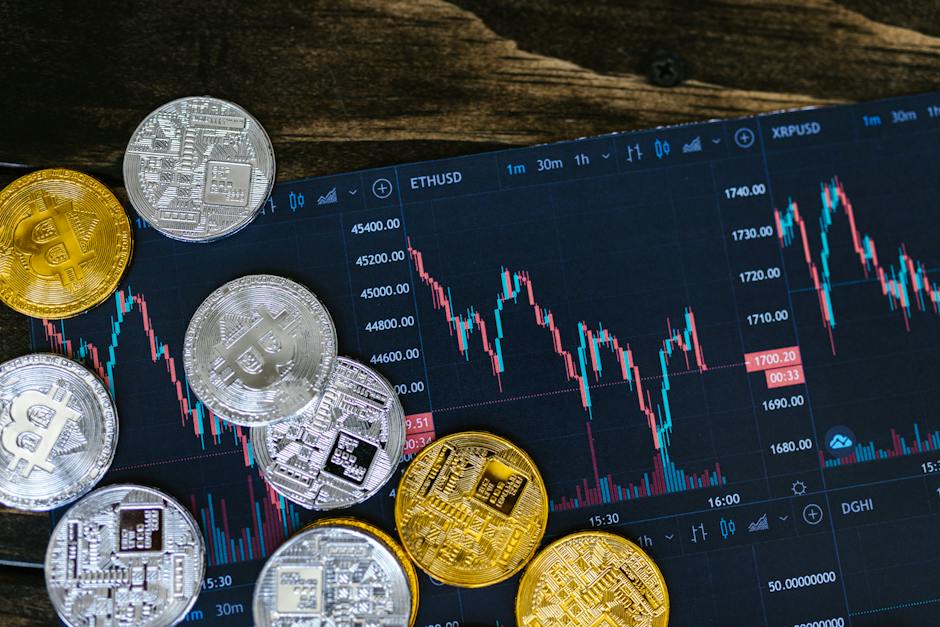
How to Choose the Best Crypto Trading Tools for Beginners
Posted on 12 April 2024
-
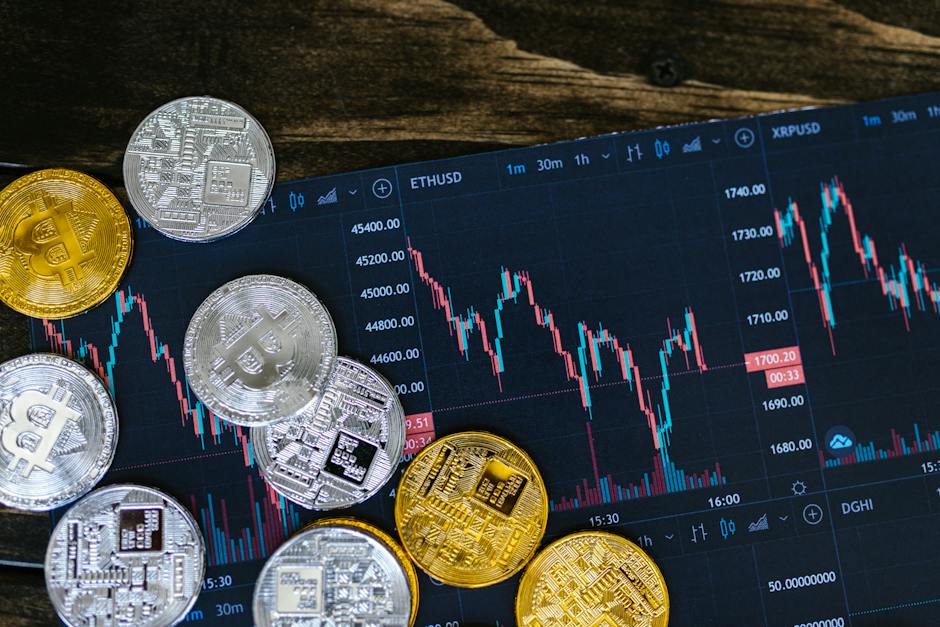
Five Factors That Influence Crypto Exchange Rates and Investments
Posted on 02 April 2024
-

Crypto Market Remains Focused on Spot Bitcoin ETF Flows Over Fundamentals
Posted on 25 March 2024
-
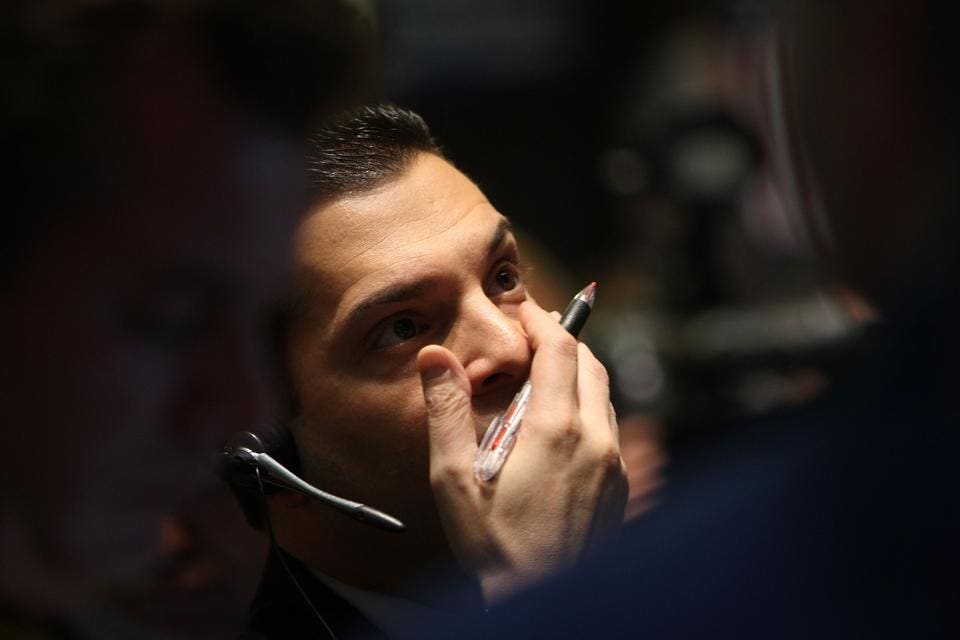
BlackRock And Fidelity ETF Bombshell Triggers A Massive $75 Trillion Bitcoin Price Prediction
Posted on 25 March 2024
-

How to Choose the Best Crypto Trading Tools for Beginners
Posted on 26 June 2023
